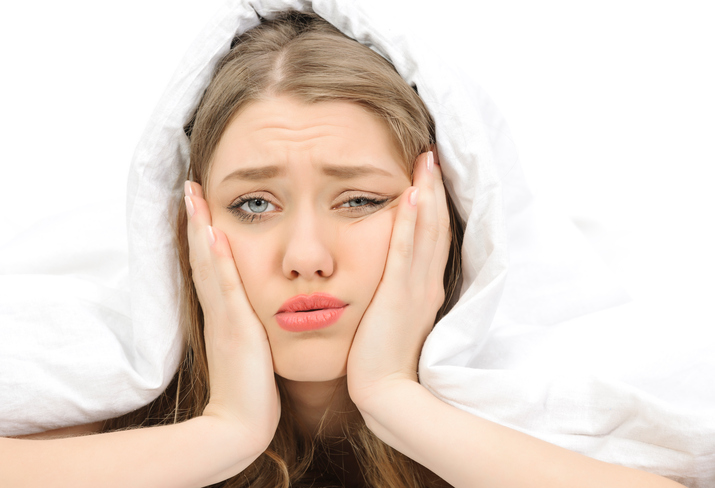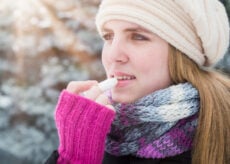How to Prevent a Hangover at Any Age (with this 1 tip)

“Did anyone get the license plate of the truck that hit me?”
Have you ever woken up uttering those words after a night on the town? If so, you’re not alone. What started out as a casual happy hour after a long day at the office ended with your alarm clock blaring at you the next morning like an airhorn from an 18-wheeler.
Now it’s time to pull yourself together, but even though you “slept” for 8 hours, you’re exhausted. You roll out of bed anyway, to start getting ready for work at a slug’s pace, and prepare to take the day by storm.
Except halfway through the process of just getting ready for the day, you realize you’re hungry, but maybe you’re not hungry—unfulfilled might be a better way to put it. And being burdened by a headache probably isn’t helping either. So, you find the quickest food option, which happens to be a cereal bar and a glass of orange juice. Not the best choice, but it could be worse.
You venture out into the world like any other day, except today’s different. Things didn’t quite start off on the right foot, and rather than trying to find your footing (heck, maybe you can’t find it), you decide to roll with it.
Is it apathy, or did you just drink too much last night? Probably both.
On the way to work, you stop at McDonald’s for an Egg McMuffin. Yum. And to nobody’s surprise, there are donuts at the office when you get there, so you cave and bring one (maybe two) to your desk.
…you know how the rest of the day plays out from here.
This storyline may be slightly exaggerated, but I think a lot of people find themselves in similar situations. Most would agree it is increasingly difficult to rebound, physically speaking, from consuming even just one or two alcoholic beverages, and that’s especially the case for us older folks.
What’s more, the slight derailing that occurs from drinking alcohol typically manifests into poor decision-making processes that carry on into the subsequent day. In other words, drinking alcohol will impact what you do while you’re drinking as well as the day after.
So how do you prevent a hangover like this from happening? Let’s find out…
What happens when one overconsumes alcoholic beverages?
It should come as no surprise that when you hydrate (i.e., drink liquids), you consequently urinate. (What goes in, must come out.) What you may not be aware of is that alcoholic beverages make you urinate more frequently. In doing so, your chance of dehydration increases, which may make you feel lightheaded and thirsty, the latter of which prompts you to consume more liquids, aka, more alcohol.
In addition, consuming alcohol may affect your blood sugar levels, which may cause shakiness, moodiness, and lethargy. Those already dealing with blood sugar regulation issues should be careful with overconsuming alcoholic beverages for this reason alone, although there are many reasons to rein in your alcohol beverage consumption.
What’s more, alcohol consumption may increase the production of stomach acid, and if you’re not eating to slow down the absorption/digestion process, you could incur feelings of nausea, stomach cramping, and potentially vomiting.
And lastly, overconsuming alcohol has been shown to dampen the immune system, increase appetite/hunger hormones, shorten concentration, and disrupt sleep quality, all of which will drastically impact one’s quality of life and longevity.
Fun Fact: The National Institute on Alcohol Abuse & Alcoholism (NIAAA) has suggested that men should not regularly consume more than 3 to 4 units of alcohol per day, and women should not regularly consume more than 2 to 3 units per day. A unit is the equivalent to 8 grams or 10 ml. There is also a maximum limit of 14 drinks for men and 7 drinks for women per week.
* Moderate drinking is defined as four alcoholic drinks for men and three for women in any single day.
* Regularly means either every day or most days of the week.
Congeners, including esters and aldehydes, are substances that are produced during the fermentation of darker spirits, and they are responsible for most of the taste and aroma in distilled drinks such as whiskey or gin. They are known to contribute to the unfavorable symptoms one experiences when drinking too much alcohol. In fact, some studies suggest a key to prevent a hangover is to consume clear or light colored liquors as opposed to darker ones.
Common symptoms one might experience upon waking up after overconsuming alcoholic beverages include:
- Accelerated heartbeat
- Anxiety
- Bloodshot eyes
- Body and muscle aches
- Diarrhea
- Dizziness
- Halitosis
- Headache
- Hypersalivation
- Flatulence
- Lethargy, tiredness, fatigue, listlessness
- Nausea
- Photophobia (sensitivity to light)
- Problems focusing or concentrating
- Sensitivity to loud sounds
- Depression (dysphoria)
- Irritability
- Moodiness
- Stomachache
- Thirst
- Trembling or shakiness, erratic motor functions
- Vomiting

Why does it take longer to recover as we age?
First, it’s important to delineate alcohol (ethanol) from the carbohydrates found in wine and other alcoholic drinks. Ethanol is not an essential nutrient and is rich in energy, providing 7 calories per gram. Alcohol is readily absorbed throughout the entire gastrointestinal (GI) tract, and the rate at which it’s absorbed is likely affected the most by the presence or absence of food in the stomach. After ethanol is absorbed through the GI tract, it heads to the liver, which metabolizes more than 90% of it. The ethanol that isn’t metabolized can enter the bloodstream unaltered.
On a cellular level, metabolizing alcohol is a two-step process in which the liver takes acetaldehyde, a highly-toxic chemical found in alcohol, and converts it into the non-toxic chemical, acetate. And it generally takes the body one hour to metabolize and process one alcoholic beverage.
So, if you are consuming alcohol at a rapid rate (e.g., three drinks every hour), your body cannot break down acetaldehyde fast enough to keep up, and the excess toxic chemicals are released into your bloodstream.
Dr. Young Chul Kim has led studies looking at this process and has a few theories. Kim has said,
“Many factors appear to be involved in worsening of hangover in old age. One is that the liver capacity to cope with the toxicity of acetaldehyde decreases as we get old,”
You see, acetaldehyde is directly detoxified in the liver by an antioxidant called glutathione. Dr. Young Chul Kim continues,
“Our data indicates that, as age increases, glutathione generation capacity is decreased, so cells may not be recovered or repaired rapidly.”
So, “how do you prevent a hangover”? The key is below…
Moderation is key to prevent a hangover
There is a fair amount of scientific evidence to suggest that drinking a glass of wine (daily) has significant health benefits. Whether it’s the resveratrol, the polyphenols, or the antioxidants, red wine has long been thought of as heart-healthy, and it has the science to back that up to boot.
In addition, there is scientific research to suggest that alcohol in and of itself has potential cardiovascular benefits. Evidence shows that drinking alcohol is associated with a reduction in inflammation and blood clotting, which may contribute to improved heart health.
Studies show that consuming alcohol, in moderation, possesses the following heart-healthy benefits:
– Raises “good” cholesterol (HDL)
– Reduces formation of blood clots
– Helps prevent artery damage caused by high levels of “bad” cholesterol (LDL)
All that being said, drinking in moderation should provide mostly the benefits stated above, not the negative health consequences. Moderate drinking is defined as an average of two drinks per day for men and one drink per day for women.
Myth: Drinking more alcohol to remedy the symptoms of a hangover will cure your symptoms (i.e., “the hair of the dog”). While there is a hint of scientific truth to this, the risks far outweigh the rewards. It is not suggested that drinking more is a benefit to prevent a hangover. In other words, don’t drink more and elongate your hangover. 😉
Fact: Consuming equal amounts of water for each alcoholic drink consumed will keep you hydrated and will allow you to minimize the effects of alcohol both while drinking and the morning after (and possibly prevent a hangover).
Myth: Eating greasy food helps minimize the effects of a hangover. Unfortunately, “the alcohol is already in your body, so eating food or drinking water won’t affect how it’s absorbed,” says Aaron White, PhD, senior advisor at the National Institute on Alcohol Abuse and Alcoholism.
Fact: Consuming foods which are higher in protein before you consume alcoholic beverages may benefit you in the long run to prevent a hangover. Protein-rich foods take longer to digest, which slows how fast your blood alcohol level goes up.
*Bonus Fact: My go-to food before I consume any alcoholic beverages is salmon. Alcohol depletes your body’s vitamin B-12 levels, but salmon has super-high levels of B12 as well as omega-3’s. Not only does salmon contain this dynamic duo, but it is chockful of protein. This may help minimize the effects of alcohol, while promoting short-term memory and general neurological function.
The bottom line, “There’s no magic potion that can prevent a hangover,” says George Koob, MD, director of the National Institute on Alcohol Abuse and Alcoholism (NIAAA). The only way you can avoid the symptoms associated with a hangover is to drink in moderation, or simply abstain.






